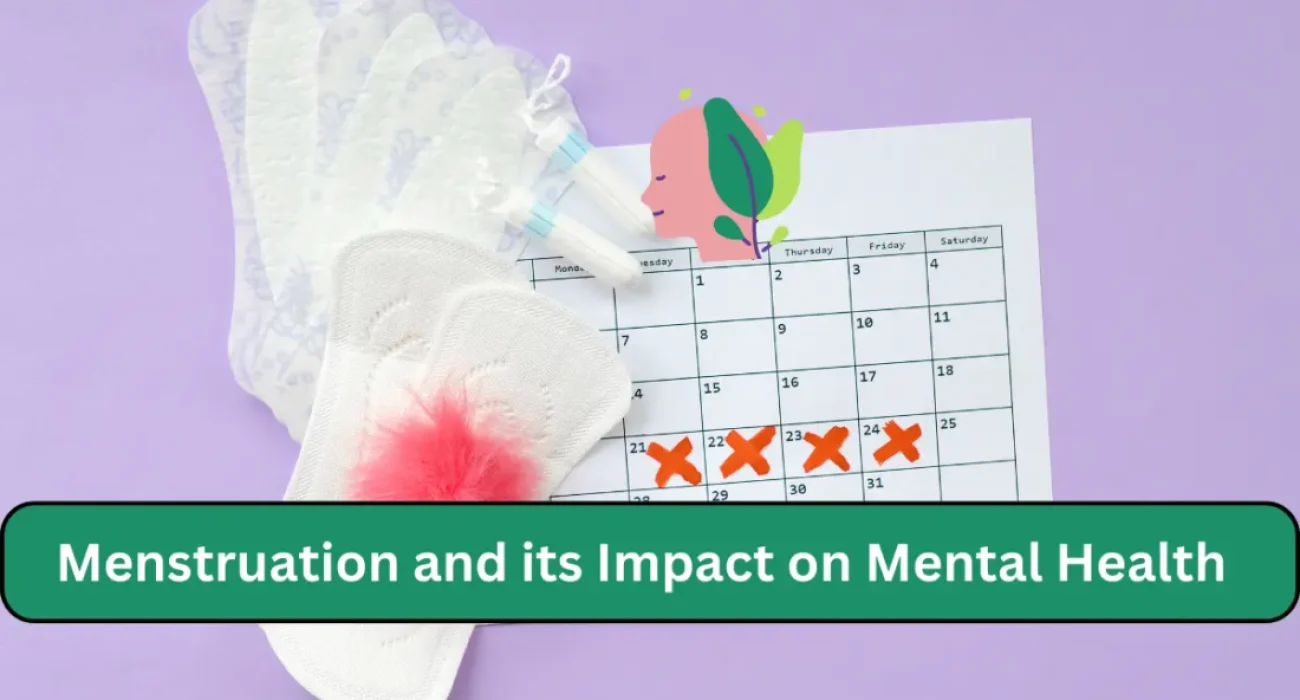

Introduction
Menstruation is a natural and essential aspect of a woman’s life, marking the reproductive cycle. While often discussed in terms of physical discomfort, it also has a profound impact on mental health. This article explores the various dimensions of this relationship, delving into the definition of menstruation, physical symptoms, the connection between physical discomfort and mental well-being, , exacerbation of mental health challenges by menstrual disorders and the importance of seeking social support and professional help.
Definition
The monthly shedding of uterine lining is known as menstruation. Menses, menstrual period, menstrual cycle, and period are other names for menstruation. Menstrual blood exits the body through a vagina and passes through the cervix. It is a mixture of blood and tissue from within the uterus.
Hormones are responsible for menstruation. Body of a person who menstruate uses hormones as chemical messengers. During your menstrual cycle, the ovaries, a component of reproductive system, and pituitary gland, located in the brain, produces and releases specific hormones at different times. These hormones cause the lining of your uterus to thicken. This takes place in order for an egg to implant into the uterine lining in the event of a pregnancy. Moreover, hormones trigger ovulation, the release of an egg from the ovaries. The egg waits for sperm as it travels down the fallopian tubes. A sperm cannot fertilize an egg and cause pregnancy to occur. The uterine lining degrades and sheds and that is periods.
This series of events that take place in the body each month as it gets ready for the possibility of pregnancy is called the menstrual cycle. The period of time between the onset of menstrual period and the start of subsequent one is known as menstrual cycle.
Does Physical Discomfort due to Menstruation have any impact on Mental Well-being?
Physical symptoms including cramps, exhaustion, changes in appetite, and sleep disturbances are frequently experienced in conjunction with menstruation. Individual differences exist in the severity and duration of these symptoms. Menstruation-related physical discomfort can have a substantial effect on mental health. Mood swings, irritability, and general emotional distress can be caused by pain, discomfort, and hormonal changes. The two main hormones that control the menstrual cycle, estrogen and progesterone, also affect mood. Emotional shifts can result from variations in these hormones’ effects on serotonin levels, the “feel-good” neurotransmitter.
How Menstruation and Menstrual Disorders Exacerbate Mental Health Challenges
Studies show that severe premenstrual symptoms are more common in people with pre-existing mental health disorders. Premenstrual dysphoric disorder (PMDD) is one condition that can make mental health issues like depression, anxiety, and mood disorders and in extreme cases even suicide risks.
Help and Support During Menstruation
In order to lessen the negative effects of menstruation on mental health, social support is essential. During this normal cycle, having partners, family, and friends who support you makes the emotional experience more positive. Consulting with therapists and other healthcare professionals is essential for those with severe menstrual-related mental health issues. Individualized interventions and coping mechanisms can be obtained with professional counselling.
Conclusion
Menstruation is more than just a physical process; mental health and it are closely related. Promoting holistic well-being requires an understanding of and recognition of the influence of societal attitudes and fluctuations in hormone levels. Menstruation and mental health are welcomed and supported in a society that is shaped by open dialogue, education, and destigmatization initiatives. Education, awareness and creating a supportive atmosphere are essential first steps in ending the taboo around menstruation and its effects on mental health.
-By Adv. Deeksha Rai
IAW resources
Browse our help directory